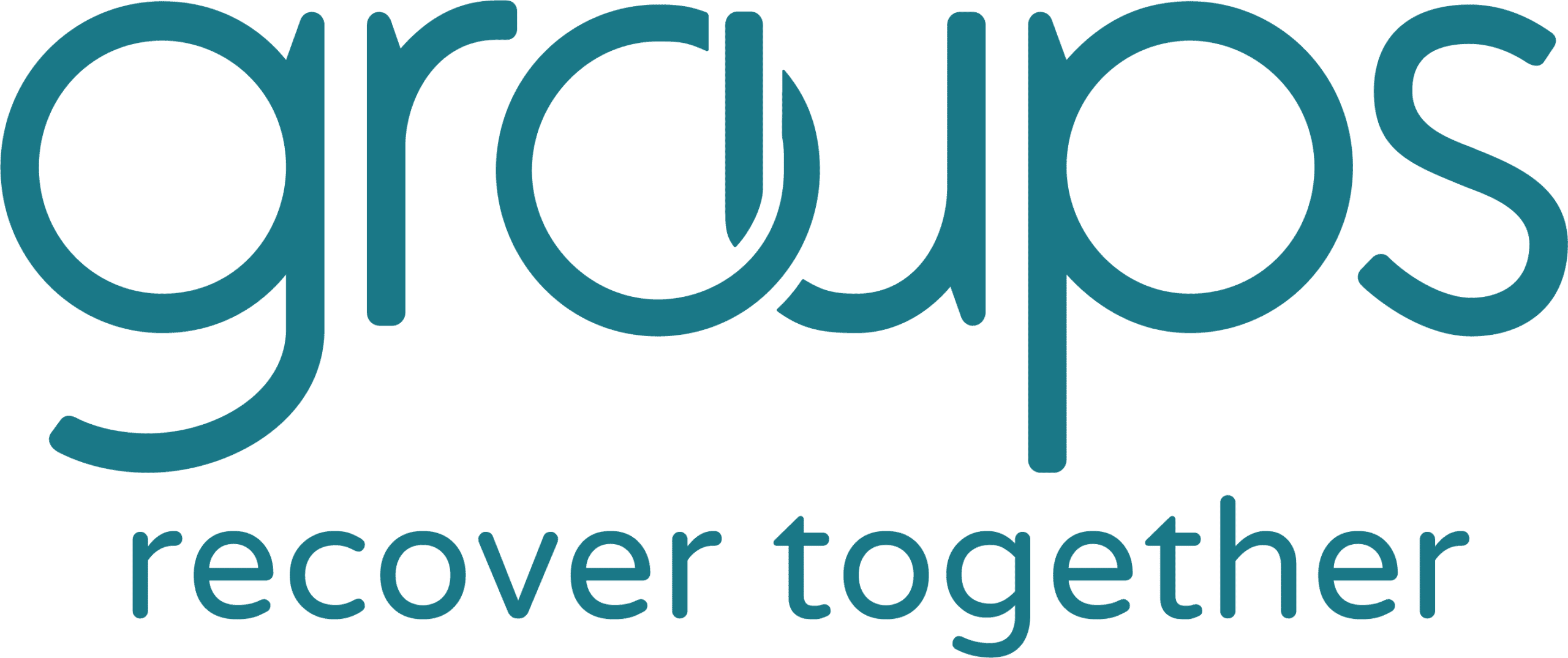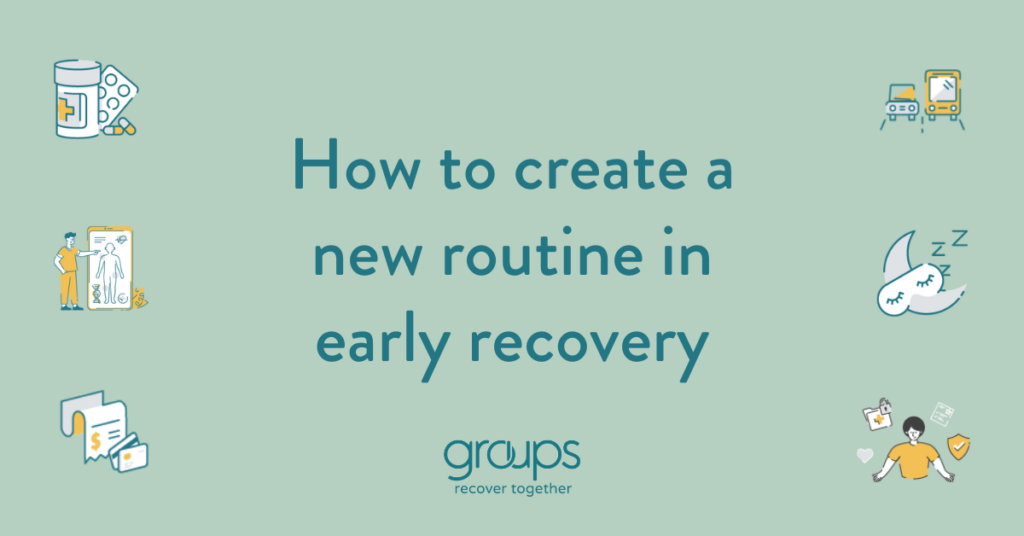Routine can be an important part of recovering from addiction, especially while you’re in the early stages. It “creates stability and ultimately develops a sense of security,” explains Groups Member Access Clinical Supervisor Melanie Hayden MSEd, LADAC II.
Routine also helps occupy your time. “Routines allow you to know what is going to happen ahead of time and prevent too much free time,” says Kayla Harless, MA, AADC, a Groups counselor in Barboursville, WV.
“The brain thrives on structure. When in active addiction, the brain loses this quickly,” adds Groups Recovery Consultant, Kaela Allen, who works out of Lafayette, IN. “Early in recovery, allow the brain time to start the healing process. Predictable, routine activities are critical.”
What’s more, research shows that having daily routines may make problems feel less distressing.
Here are seven steps the Groups team recommends when creating new routines in early recovery.
1. Think about how you want to change your routine.
“We already have a tendency toward certain activities we do regularly. It helps to know you do not have to reinvent the wheel. Take a critical look at what habits are serving you versus draining you,” says Marguerite Boone, a Groups counselor in Louisville, KY. “We have control to direct energy toward habits that are instead empowering.”
Stephanie recommends focusing on the basics to reinforce healthy habits, build self-control, and resist cravings:
- Sleep: “Create a consistent sleep schedule that includes going to bed and getting up at the same times daily. Oversleeping can cause depression and mental/physical concerns.” If you need support finding a safe place to sleep, Groups can help. Members have access to Recovery Support Specialists (RSS). RSS can assist members with local and national housing resources.
- Movement: “Find some type of activity or fitness routine. That could look like taking a walk around your neighborhood, stretching, or yoga.”
- Nutrition: “Having a healthy, balanced diet is also important.” The RSS team at Groups can help members who are struggling with food security access local nutrition programs.
- Self-care: “Prioritize self-care into your daily routine. Self-care is whatever you do for yourself that enriches your spirit, lifts you up, and leaves you feeling positive and refreshed.”
Marguerite recommends writing down or talking about your routine with someone you trust. You can then refer back to those notes to hold yourself accountable.
2. Start small.
Small changes are easier to stick with than big ones. “Creating a routine in early recovery should include small, daily tasks,” explains Melanie. “Through completing daily tasks, it becomes a habit, and habit can lead to a lifestyle change.”
Consider how you can build up to the routine you want instead of trying to start there. “Start with a very simple schedule. Incorporate at least one or two activities each day that support recovery. That could be reaching out to someone every day, attending a self-help meeting, or touching base with a sponsor or coach.” Kaela says. A small habit could be drinking a glass of water or making your bed in the morning.
3. Put your new routine on the calendar.
Sometimes you need daily reminders of your new routine. Keep a print or digital calendar to block out time for different tasks or activities. If you’re using a calendar on a smartphone, you can create events and set reminders for them.
“Write out or keep a schedule for yourself that goes over the plans for each day to prevent from overdoing it or not having anything at all to do,” Kayla recommends. “This also helps to keep track of any important appointments so one does not miss something that is well needed.”
4. Cut yourself some slack if you miss a day or take a break.
No one’s perfect. Everyone struggles with new routines. It’s okay if you can’t always stick to the plan. And if a new routine feels too challenging, maybe that’s a sign to start smaller. Whatever happens, show yourself compassion and keep trying.
“Self-compassion involves focusing on your strengths rather than your weaknesses. Forgiving yourself can be difficult, but it is an important part of self-compassion,” Stephanie says. “It is important to forgive yourself for these mistakes and to recognize that they do not define you.”
“Self-talk is powerful in reframing ‘stumbles’ as not total ‘failures,’” Marguerite explains. “Habits, like anything, take time, and for them to be routine requires consistency.” However, Marguerite adds, it’s okay to take a break from the routine and come back with a clearer mindset.
“It can be easy to feel like we have to accomplish everything all at once,” adds Kaela. “It is okay, and almost necessary, to take things slow.”
5. Celebrate the wins, no matter how big or small.
Self-compassion also means celebrating the wins. Do something nice for yourself if you get up early every day for a week. The celebration could be making yourself your favorite meal or seeing a movie. Maybe it’s a small present to yourself.
“Take things one day or one moment at a time, and celebrate even the small tasks completed,” says Kaela.
6. Trust the process.
Creating a new routine takes time. One study found it can take 66 days to more than eight months to turn a new behavior into a habit. You’re making progress every single day. Trust yourself, trust what you’re doing, and trust the process. You’re doing great.
“Everyone, including those not in recovery, makes mistakes, and no one is perfect,” Kayla explains. “It is okay to be a flawed person who makes mistakes along the way. That’s how we learn.”
New to Groups? Groups is a leading outpatient treatment provider for opioid use disorder. Members get access to medication, group therapy, and life goal support. Our flexible program is available online or in person. It’s covered by most Medicaid and insurance plans, and we’ll work with you if you’re uninsured.
Call us at (888) 858-1723 any time, 365 days a year, to find out if Groups is right for you.




